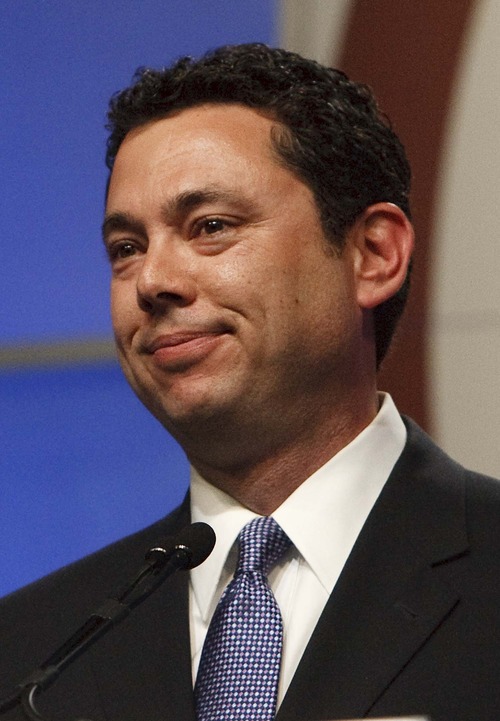This is an archived article that was published on sltrib.com in 2013, and information in the article may be outdated. It is provided only for personal research purposes and may not be reprinted.
Washington • All four of Utah's House members backed a budget deal Thursday that they aren't fond of, but see as a realistic compromise to stave off another government shutdown given the entrenched partisan divide.
The two-year budget compromise passed the House on a vote of 332 to 94 and afterward the representatives left town for their Christmas break. The bill now goes to the Senate, which expects to vote on it next week. Sen. Orrin Hatch is leaning against the deal and Sen. Mike Lee has already announced his opposition to it. But in the House, Utah's lawmakers said this framework is one they can sell to voters.
"It is better than voting no and doing nothing," said Rep. Jason Chaffetz, R-Utah, who notes the bipartisan compromise will lower the deficit by $85 billion in the next decade without raising taxes. "It is not ideal. It is not something I would have written myself, but we are in divided government and I think it is in the best interest of the nation moving forward."
The budget only sets a cap on federal spending, so Congress must still pass a detailed spending plan in January to keep the government operating. Under this agreement both parties would set total spending on the military and domestic programs at $1.012 trillion in 2014 and bump it slightly to $1.014 trillion in 2016, and remove the across-the-board sequester cuts that neither party liked.
If Congress fails to pass this deal, the military would take another $20 billion sequester hit. If it does gain Senate approval, the military will likely see a $2 billion increase in funding next year.
Rep. Rob Bishop, R-Utah, a member of the House Armed Services Committee, said another cut could lead to another round of furloughs. That concern was a "prime factor" in his yes vote. He's still frustrated about the last round of reductions in defense spending.
"Our defense isn't what it ought to be and what people expect it to be, but having another $20 billion cut in January would almost be critical," he said.
Rep. Chris Stewart, R-Utah, is a new member of the Appropriations Committee that will take the budget blueprint and craft a spending plan. He called the deal "a tiny step forward, but a step forward," while Rep. Jim Matheson, D-Utah, called himself "a lukewarm supporter."
"On the plus side, the framework for the next two years provides some certainty," he said. "While on the downside it doesn't take care of any big issues of the day."
Matheson hoped Congress would make a grand bargain that would reform the tax code along with big programs like Social Security and Medicare. Congressional leaders tried that in the past, but never made much progress, even after instituting sequestration in an intentionally painful manner to spur compromise.
It has finally spurred compromise, but on a smaller scale than first anticipated.
House and Senate negotiators replaced the sequestration cuts of $85 billion by raising airlines fees, which is likely to raise the cost of air travel; reducing cost-of-living increases for military retirees; and requiring new federal employees to pay more for their retirement benefits. The bill also pushes off some budget cuts to future years.
The budget also increases federal domestic spending by $22 billion, which is likely to result in new investments in infrastructure and education.
Lee is among a group of Republicans upset that the budget compromise would raise total federal spending above the amount agreed to when sequestration went into effect.
"Sequestration is far from ideal, but at least it forced Congress to get serious about excessive spending.
This deal cuts into the modest gains taxpayers have won since 2011," Lee said in a statement. "The deal they have struck is not one I can support."
Some Democrats, such as House Minority Whip Steny Hoyer, D-Md., complain that the budget doesn't increase spending for unemployment benefits that are set to expire by the end of the year for more than 1 million Americans. But Hoyer said the deal was the best they could do.
Twitter: @mattcanham



